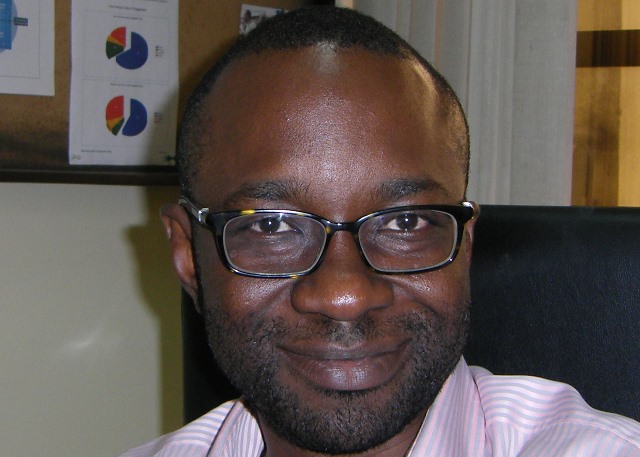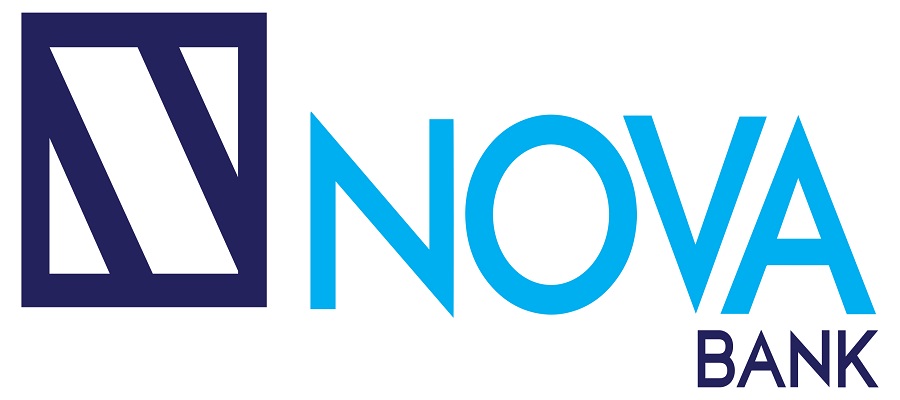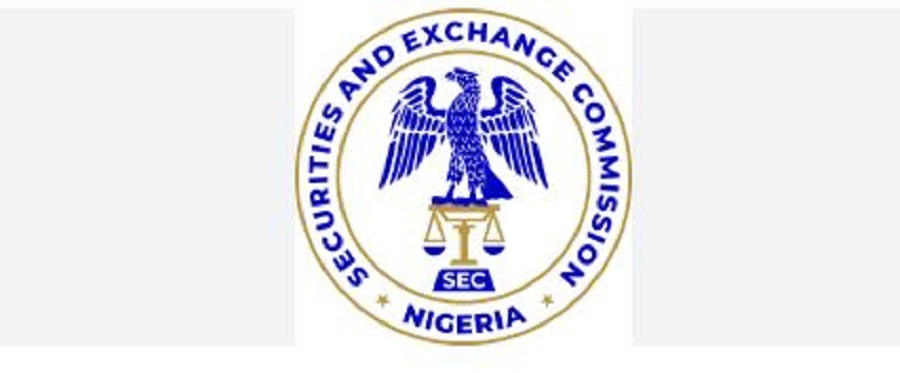E-Financial
Paga to Further Accelerate Growth with $10M Series B2 Investment

Paga, the leading mobile money company in Nigeria has announced that it has closed a $10 million growth financing led by the Global Innovation Fund.
Also participating in the round were existing investors Goodwell (managed by Alitheia Capital), Adlevo Capital, Omidyar Network and Unreasonable Capital. This new financing brings the total Paga has raised since inception in 2009 to $35 million.
The company commenced commercial operations in August 2012 and recently revealed that since then it has served 9 million customers and created over 10,000 jobs through its 17,000 agents who hire staff to run their stores.
“GIF is proud to lead Paga’s Series B2 round,” said Alix Peterson Zwane, GIF’s CEO. “Paga’s mission of helping people ‘make life possible” aligns with our core mission of supporting entrepreneurs and innovators that seek to improve the lives of those living on less than $5 per day. I am pleased that GIF will help enable Paga’s next phase.”
Nigeria is one of the fastest growing emerging markets in the world, and the biggest economy in Africa with $405 billion GDP.
Nigeria currently has a population of 186 million but is expected to become the 3rd largest country in the world (behind India and China) by 2050 with 411 million people. In Nigeria today, over 100 million adults find it difficult to transfer or leverage money for basic human needs.
This problem is one that exists even for those that are banked, and is something Paga’s team is passionate about solving.
The growth financing announced today will enable Paga further scale its business in Nigeria to drive the growth of Paga’s mobile wallet and agent network, and explore expansion opportunities in other markets where similar problems exist.
“Our belief in Paga as an effective platform to drive financial inclusion is unwavering,” says ‘Tokunboh Ishmael, Managing Partner at Alitheia Capital, “Paga has shown solid progress, and alongside other investments in our portfolio has played a huge role in our ability to demonstrate that enabling access to essential services for the broad population has both significant financial and developmental impact.”
Paga’s massive transformative purpose is “To make it simple for one billion people to access and use money.” With a nationwide network of 17,000 agents and more than 9 million users accessing funds in Nigeria, Paga is making strides by enabling efficient digital payments and building successful societies.
This has translated to over 57 million transactions processed worth approximately $3.6 billion, a business that is profitable and growing at 110% compounded annual growth rate (2016-2018).
“At Paga, we are building an ecosystem that enables people to digitally send and receive money, and creating simple financial access for everyone,” explains Tayo Oviosu, “We do not seek to be a bank, but rather to partner with banks and financial institutions in the markets we operate.
“We are proud to welcome the Global Innovation Fund as a partner on our journey. We were attracted to them because of their global focus, network to help us achieve our ambition and a clear alignment of values.
“It is also fantastic that our existing investors remain committed to our strategy and are demonstrating that by their additional investments.”
Paga’s mission is strengthened by the recent release of Paga’s new money transfer app that will drive use of the Paga wallet for person-to-person transfers and in-store payments.
In a country where digital financial services still leave much to be desired, Paga is staking a claim at being the Venmo of Nigeria. With cash still being king in emerging markets, and the general unreliability of POS services coupled with the sparsely located Banks and ATM’s, the company has created a viable solution for ease of payments: a simple app that allows you to send money to or request money from anyone only using their phone number or email address and a digital wallet to which you can link any debit card or bank account. In this sense, Paga is acting as a facilitator to provide a swift and reliable payment gateway for your already existing financial accounts.
This reinforces the idea that Paga is seeking to be the reliable access point to all relevant financial services for all people.
The core ethos of the Paga brand is “Making Life Possible”, so the decision to provide free money transfers was driven by the underlying desire to solve basic human needs and to ease the pain of not only person to person payments but payments for small to medium businesses, especially those trading through social media channels.
According to the 2018 Global Entrepreneurship Index, Nigeria ranks 12th in Africa for entrepreneurship, even with its uniquely challenging environment.
The high unemployment rate forces its citizens to be creative in order to thrive, and cultural barriers which sometimes prevent access to education and traditional workspaces means that a higher percentage of these entrepreneurs are female.
The company, which prides itself in aiding economic empowerment for less advantaged citizens, particularly in empowering women, notes that women are some of the highest performing agents.
Paga also prides itself on providing opportunities for small businesses to grow and create even more employment opportunities for others.
Nigeria is not the final frontier – Paga has already noted an important trend: the problem they are solving also exists in other markets. The platform is scalable and multi-currency, and the company has already begun considering opportunities in large countries such as Ethiopia, Mexico and the Philippines.
The growing tech ecosystem in Africa is garnering international notice, as evidenced by Mark Zuckerberg’s visit to Lagos and the opening of the Facebook tech hub; not too far from Paga’s office in an area that has been dubbed “Yabacon Valley”, and the exportation of African tech can be a big driver for the economy.
E-Financial
NOVA Bank Opens Regional Office in Owerri

NOVA Bank has opened its regional office in Owerri, Imo State, as part of its expansion drive across the South-East and South-South regions.

At the inauguration ceremony, recently, Senator Hope Uzodinma, Imo State Governor, announced that the state government would provide land for the development of the bank’s permanent regional headquarters for the South-East and South-South in Owerri.
The event was attended by government officials, business leaders from the two regions, and members of the Nigerian diaspora.
Governor Uzodinma stated that the bank’s entry into Imo State aligned with the government’s efforts to promote economic growth through infrastructure development, improved road networks, and market-driven initiatives.
He described NOVA Bank as an early investor in the region’s emerging economic opportunities.
He also commended the bank’s approach of combining physical banking infrastructure with digital platforms, noting that it aligns with the state’s emphasis on technology-driven governance and commerce.
“In recognition of NOVA Bank’s vision and long-term commitment to the region, the Imo State Government will allocate a suitable parcel of land in a prime location for the development of its permanent South-East/South-South Regional Headquarters,” the governor said.
Speaking at the event, Phillips Oduoza, chairman, NOVA Bank, thanked the Imo State Government and residents for their support, describing the Owerri office as a key part of the bank’s national expansion strategy.
“The opening of our regional office in Owerri marks a strategic milestone in NOVA Bank’s growth and underscores our commitment to the South-East and South-South,” Oduoza said, adding that the city would serve as a hub for the bank’s operations in the region.
He said the bank’s expansion is driven by a focus on sustainable growth, innovation and strong financial fundamentals, noting that NOVA Bank is investing in digital infrastructure and financial solutions to support small and medium-sized enterprises, corporates, public-sector institutions, high-net-worth individuals and the mass market.
According to him, the planned regional headquarters is expected to support job creation, improve access to credit, promote enterprise growth and deepen financial inclusion across the two regions.
Oduoza said the bank remains focused on building a resilient institution that delivers value to customers, partners and shareholders.
The opening of the Owerri regional office marks NOVA Bank’s latest step in expanding its presence in southern Nigeria.
E-Financial
SEC Says CMOs Must Renew Registration in January

Securities and Exchange Commission (SEC) has announced that Capital Market Operators (CMO’s) are to renew their registration from January 1 to 31, 2026.

In a bid to make the process seamless, the Commission says it will commence electronic receipt and processing of applications for registration and updates of registration information in the first quarter of 2026.
Dr. Emomotimi Agama, director general of the SEC, stated this during an interview in Abuja.
According to Agama, “These initiatives reflect our commitment to leveraging technology for faster, more transparent, and efficient regulatory processes. The Commission is taking deliberate steps to make regulatory processes faster, more transparent, and technology-driven. We are investing in automation, databased supervision, and secure infrastructure to improve how we interact with the market.
The SEC Boss stated that through its Digital Transformation Portal, the Commission has automated registration and licensing end-to-end as operators can now submit applications, upload documents, and track approvals online, cutting down manual processing time and reducing the need for physical visits.
Commercial Paper Issuance Module
He said the Commission has also rolled out the Commercial Paper issuance module, which allows operators to file documents, monitor progress, and receive approvals electronically while feedback from early users shows a clear improvement in turnaround time.
“Work is ongoing to automate quarterly and annual returns submissions, with structured templates and system checks to ensure accuracy. A returns analytics dashboard is also in development to support risk based supervision and exception reporting.
“To back these changes, we have started upgrading our IT infrastructure, servers, storage, networks, and security layers, to boost speed and reliability. Selective cloud migration is underway for platforms that need scalability and external access, while core internal systems remain on premisev5p for now as we assess security and cost implications.
“At the same time, we are strengthening data integrity and cybersecurity with vulnerability assessments and planned penetration testing once automation and migration phases are stable. These efforts show our commitment to building a modern, resilient regulatory environment that supports efficiency, investor confidence, and market stability.
Agama affirmed that the Nigerian Capital Market is clearly on a path toward digital transformation, therefore, there is an urgent need for regulatory clarity on advanced technologies, targeted support for smaller firms, and capacity-building initiatives.
He said, “A phased and proportionate approach to regulating emerging technologies such as AI is essential, complemented by internal readiness through supervisory technology tools. Furthermore, investor education, particularly among younger demographics, will be critical to future-proof participation and drive fintech adoption.
“Innovation is vital, but it must be accompanied by responsibility. As operators embrace automation, artificial intelligence, and data-driven tools, they bear a duty to ensure ethical, secure, and compliant deployment. Safeguarding investor data, preventing market abuse, and maintaining operational resilience are non-negotiable.”
The SEC DG said that ultimately, responsible technology adoption is about building trust, the cornerstone of our markets saying that trust thrives on fairness, transparency, accountability, and regulatory compliance.
He therefore urged operators to uphold these principles adding that it would not only protect investors and systemic stability but also strengthen the long-term credibility and competitiveness of the Nigerian Capital Market.
E-Financial
Naira Stability, Lower Borrowing Costs Expected in 2026 — CBN Survey

The naira is projected to remain largely stable in the coming months, while borrowing costs are expected to ease as inflation moderates, according to the Central Bank of Nigeria’s (CBN) latest Business Expectations Survey (BES).

CBN
The survey, which polled about 1,900 businesses nationwide, revealed that confidence in the local currency has strengthened. Respondents expect the naira to rise from an index of 28.8 points to 42.2 points by May 2026, extending the rare period of stability recorded throughout 2025.
Borrowing rates are also forecast to decline, with the index dropping from 15.4 points to 11.7 points, reflecting expectations of softer monetary conditions as inflationary pressures ease.
“Respondents expect the naira–US dollar exchange rate to steadily appreciate across the review periods, as indicated by the positive indices. They also anticipate a continuous positive outlook for borrowing rates during the same periods,” the BES report stated.
The naira has enjoyed an unusually long stretch of stability after losing about 41% of its value in 2024 following the unification of exchange rates. Analysts attribute the current calm to the CBN’s calibrated interventions and steady inflows from foreign portfolio investors.
Inflation, which stood at 14.45% in November 2025, is projected to fall to single-digit levels in 2026. This outlook could give monetary authorities room to begin a gradual easing cycle, potentially improving credit access for businesses.
Despite the improving macroeconomic environment, businesses continue to grapple with structural constraints. The survey highlighted insecurity (70.1 points), high/multiple taxation (69.7 points), and insufficient power supply (69.3 points) as the most pressing challenges. Other concerns include poor infrastructure and an unfavorable political climate, both scoring 57.7 points.
While optimism surrounds the naira and borrowing costs, the BES underscores the need for sustained reforms to tackle deep-rooted operational challenges. Analysts say that without addressing insecurity, taxation burdens, and infrastructure gaps, Nigeria’s businesses may struggle to fully benefit from the improving macroeconomic outlook.

 News1 day ago
News1 day agoUS Okays $2.1Bn for Christian Healthcare in Nigeria

 General News2 days ago
General News2 days agoThe Mood Market to Light Up Lagos with a Rooftop Gifting, Food & Lifestyle Fair this Christmas

 Broadcasting1 day ago
Broadcasting1 day agoTim Akano Recounts 20-Year Growth, Media Support at NITRA End-of-Year Meet

 News1 day ago
News1 day agoSERAP Asks Tinubu to Release CTC of Tax Bill

 General News1 day ago
General News1 day agoLeo Stan Ekeh: A “Rare Avis”, an Unconquerable Entrepreneur

 E-Financial1 day ago
E-Financial1 day agoSterling Bank, Water.org, Sterling One Foundation Partner on WASH Loan for Millions

 General News1 day ago
General News1 day agoFCCPC Forces Ikeja Electric Into Compliance, Unseals Headquarters After Rights Breach

 General News1 day ago
General News1 day agoNITDA Wins Triple SERVICOM Honours for Citizen-Centred Service Delivery


























